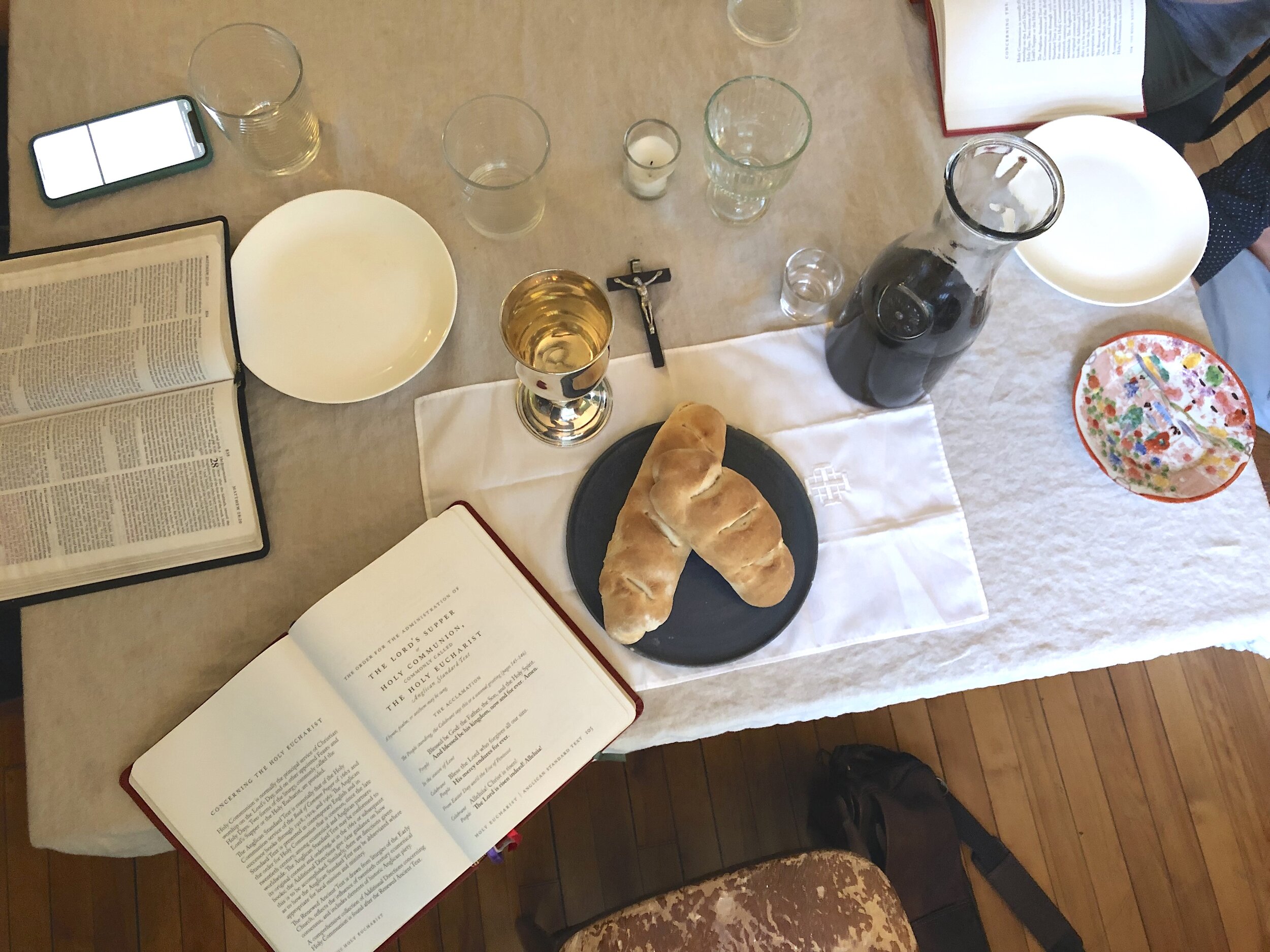Bill and Nancy Blanski, Jess and Andrew Preston, Eric and Wendy Salisbury, Leah H, and Megan Carlson recently completed the Saint Paul’s House of Formation course offered by our diocese.
Two years ago, a ragtag group of Restorationites signed up for Saint Paul’s House of Formation, a two year course on liturgy, theology, scripture, and the Anglican tradition taught by Canon Theologian Stephen Gauthier. Aaron Van Luven was the fearless leader of what affectionately became known as “The Cohort,” tackling our most off-topic questions with gracious tenacity. And we sure brought our questions…What’s the relationship between the sacraments and grace? What is the deal with Solomon and all his wives? What if the garden of Eden exists in a 4th dimension? Just to name a few.
“In Anglicanism, theology is not abstracted from a life lived with God and the community of believers.”
Rhythms and traditions shaped our weekly meetings -- Bill Blanski’s architectural-style drawings of where each person sat in the room, Leah’s bold questions that rocked the boat just enough to see the world anew, Andrew Preston’s quietly profound philosophical musings, and later on in our journey, the addition of Charlie Salisbury’s sweet baby sounds. We discussed everything from the teachings of the Church Fathers to the liturgy for the sacrament of marriage, but what became essential was our time of praying Compline at the end of each meeting. One of Father Stephen’s favorite maxims was “lex orandi lex credendi,” which he translated as “if you want to know what we believe, listen to how we pray.” In Anglicanism, theology is not abstracted from a life lived with God and the community of believers. Liturgical prayer is the embodiment of our shared belief. In prayer we meet face to face with the One who is the answer to all of our questions and is Himself all Truth.
I’ve known Anglicanism, or its American sister the Episcopal church, my whole life. Its liturgy and seasons have shaped my heart and mind, and given roots to my theology. But through these past two years of Saint Paul’s, I discovered what it is to put flesh to my faith through a sacramental worldview.
It was around my dining room table where we gathered to celebrate the Eucharist with Father Rick at our final cohort meeting that this vision of a sacramental life became real to me. As I looked at the faces of these friends passing Jessica Preston’s warm-from-the-oven homemade bread and pouring the wine into my cobbled-together assortment of mason jar glasses, it felt like I was receiving Communion for the first time. Christ lived in a real body, walked on the soil of this same earth that I now tread, had friends and ate with them. That first Communion meal was not held in a church, but in a home around a table.
I thought about all the meals I had enjoyed around my dining room table - some in haste and some in rest, some alone and some with friends, some exquisite and some a little burnt. What if the liturgy of the Eucharist was not just a preparation for that great spiritual feast we enjoy each Sunday, but a formation for all the meals we eat throughout the week around our common tables? What if, even more so than the sandwich we pack for lunch, Christ is our daily sustenance? What if the breaking of Christ’s body is a remaking of our relationships as we are sent out into the world in peace? What if inviting a neighbor to a meal in my home is an invitation into the family of God? What if the eyes I look at around my table and the hands I hold are icons of Christ himself?
Lex orandi lex credendi has a follow up - lex vivendi - how we live. While I don’t have answers to all the questions, the Saint Paul’s cohort has given me a vision for how to live out my theology, for theology is a living thing. Through all our theological discussions, we found that it is around the Table with voices joined in common prayer where formation occurs, giving eyes to see liturgies of grace infused in our everyday lives.
– Megan Carlson









